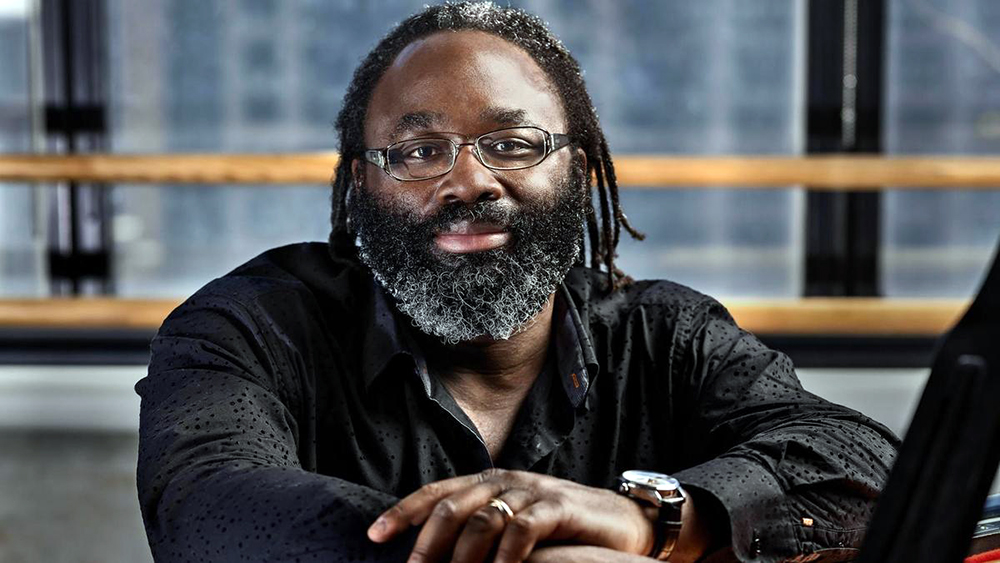The Iris Orchestra’s closing concert of the 2021-2022 season, on April 23rd and 24th, was nearly its swan song. For a moment, it appeared that the much-loved collection of virtuosos from around the world, who gather in Memphis for a few select concerts every year, was unsustainable. The notion was deeply troubling for founder and conductor Michael Stern, but he wanted to do the moment justice. “We expressly chose Beethoven’s 5th Symphony because we thought for a moment that we’d be suspending operations, and that this would have been our last concert ever,” says Stern. “I wanted to bring full closure. Beethoven’s 5th Symphony closed our very first concert ever, in 2000. So I thought, if this is going to be our last concert, let it also feature the piece that closed our first concert. But with joy I can say that Iris is not going away!”
As it turns out, Iris will stick around, albeit in new form. After the upcoming concerts, Iris Orchestra will be known as the Iris Collective. “The musicians themselves grouped together, committed to the idea that they simply would not let Iris go away. It was absolutely musician driven. And Iris will continue on. It’s going to have a different feel. I will be less involved, and it will be an amalgam of ensembles, chamber music, orchestra concerts, and new ways of imagining community engagement,” Stern says.
The fortuitous change will be foreshadowed by Iris’ chamber music concert on April 24th. “It’s entirely Iris musicians playing Beethoven’s Septet in E-flat Major, and it’s a fantastic group. It gives a little taste of what the Iris Collective is going to be about.”
Reinvention is par for the course for an organization that’s been dedicated to reimagining music from the beginning, founded to be “an ensemble for the 21st century — flexible, non-hierarchical, and passionate about the highest standards of performance.” And, as Stern sees it, this season’s last program embodies all of Iris’ ideals at once. “We have a wonderful piece from the 20th century, not one but two new pieces by essential American composers, and then an iconic work from the canon. That, in a nutshell, is what Iris is about.”
Stern is especially enthusiastic about the new works. “When we started Iris 22 years ago,” says Stern, “the express intention was, in part, to nurture and promote the music of our time, especially American composers. So this is quite a lovely thing, to have a co-commissioning relationship with two pieces in the program.
“Jonathan Leshnoff has been a great partner and friend to us since we commissioned him to write his first symphony, which was a companion piece to Beethoven’s 9th. This new piece was written to commemorate our 20th anniversary in 2020, which is why he called the piece Score. It’s not only a reference to sheet music, it also means 20 years. Since the premiere got delayed by two years because of Covid, this is a long overdue and very welcome performance.
“And Jessie Montgomery is one of the most compelling voices of the last two or three years, for good reason,” Stern continues. “I’ve done quite a few of Jessie’s works now. This piece especially, Rounds for Piano and String Orchestra, is playful and dancing and really lovely. Awadagin Pratt is making his solo piano debut with us on Jessie’s piece, which she wrote specifically for him. He is a force. A wonderful pianist, a wonderful musician.”
That forward-thinking spirit is also apparent in the classics Iris will present on April 23rd, Beethoven’s Symphony No. 5 in C minor, Op. 67, and Prokofiev’s Symphony No. 1, Op. 25, the “Classical.” Stern describes the latter piece as “turning a Haydn symphony on its ear. Through the prism of the early 20th century, Prokofiev writes this really tongue-in-cheek and wonderfully energetic music, doing something new. Beethoven, in his time, was also doing something new. He often said he was writing music for the future. Prokofiev was writing at the dawn of the 20th century, and Beethoven was writing at the dawn of the 19th century. And both were trying to find a new way of speaking in the world.”
Iris Orchestra, featuring Awadagin Pratt, piano, presents Where Past & Future Gather, Saturday, April 23rd, 7:30 p.m. at GPAC; and Iris at the Brooks: Beethoven, Sunday, April 24th, 3 p.m. at the Memphis Brooks Museum of Art.
